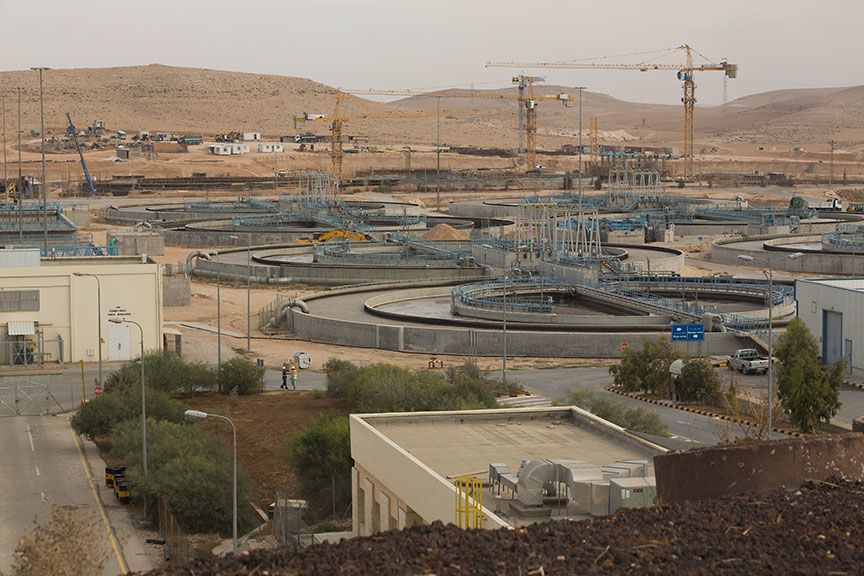MCC/DCO The As Samra Wastewater Treatment Plant in Jordan
Most people have a passing familiarity with what is known as the hydrologic cycle. For those who don’t know the term, it’s the process by which water falls to earth as rain, drains to streams and rivers and eventually makes its way into surface water bodies such as lakes and oceans. From there, water evaporates and makes its way back into the earth’s atmosphere, and the process begins again.
But this process only describes the hydrologic cycle in nature, in areas devoid of human dwellings and influence. In fact, most water is used in some way by humans during this cycle, mostly in urban areas. There is, one might say, an urban hydrologic cycle through which potable water from groundwater wells, desalination plants, reservoirs, or other sources, is transported into homes, businesses and industries, where it gets used. From there, it is piped into a centralized wastewater collection system where it heads to a wastewater treatment plant and is discharged back into the natural system. In water-poor countries, such as Jordan, using water efficiently during this urban hydrologic cycle is critical to making the most of a limited natural resource.
Jordan is a highly urbanized Middle Eastern country of some 6 million people and, because of its limited access to surface water or naturally recharged aquifers, ranks among the world’s five most water-poor countries.
MCC’s compact with Jordan addresses the entire urban hydrologic cycle in a heavily populated, poor region of the country called Zarqa Governorate. First, the compact focuses on increasing the effective supply of potable water by repairing and rehabilitating the pipes and pumps in the potable water network that reaches end users.
Once the water is used at household or commercial levels, expansion and repairs in the wastewater collection system network make it possible to increase the quantity of wastewater that is sent to the As-Samra Wastewater Treatment Plant, the largest in Jordan. The plant itself is also being expanded to accommodate the increased volume. This, in turn, generates additional supplies of high-quality treated water appropriate for use in irrigated agriculture in the Jordan Valley, which allows more freshwater to be diverted to higher-value uses in urban areas.
When that treated wastewater is used for irrigation in the Jordan Valley, the same amount of freshwater can be diverted to higher value uses in the urban areas. This arrangement effectively allows two uses for each unit of water. In this way, the compact is designed to enhance economic growth by increasing the availability of fresh water for individual households, small businesses in urban areas and the vibrant service sector, including tourism facilities. It also reduces the need to develop increasingly expensive sources of water, decreases unsustainable off-take levels from Jordan’s aquifers and eases pressures that could erode household and business incomes over time.
Finally, the program helps poor households get more water through the water distribution network at reasonable prices. By designing a program that addresses each phase of the urban hydrologic cycle, MCC and Jordan are working holistically to protect and preserve a limited natural resource.

